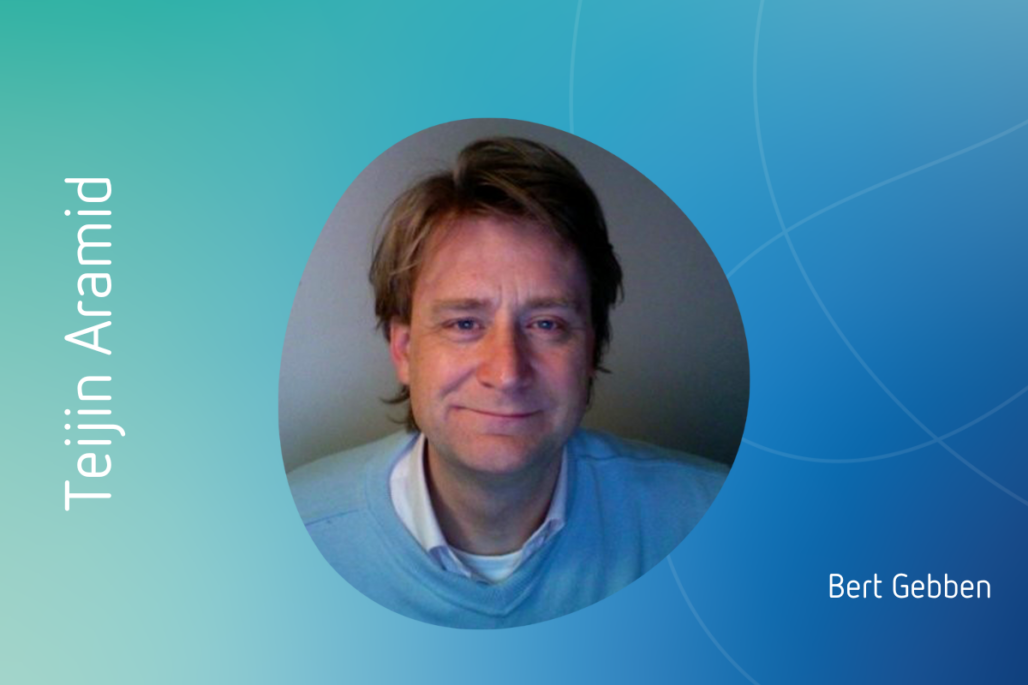Teijin Aramid has been involved with DPI since its inception and is also a well-known member of various ISPT consortia. The decision to collaborate on the Circular Plastics Initiative between DPI and ISPT made it logical for Teijin Aramid to join the consortia. Bert Gebben from Teijin Aramid explains that our collaboration is synergistic.
In this interview, we focus on Teijin’s efforts in the field of Circular Plastics, identifying factors that can accelerate developments, and determining how the CPC’23 can assist.
“Teijin Aramid plays an active role in several Circular Plastics Initiative (CPI) consortia,” Bert Gebben explains. “An example is the InReP project, which concentrates on developing technologies for sorting, mechanical recycling, and chemical recycling. This is in line with Teijin’s overall strategy of integrating sustainability and circularity into our operations. We have been investigating recycling methods for more than 25 years, making us a leading player in this field.”

Challenges in recycling
“Teijin Aramid’s operations are based in the Netherlands, but our products are supplied globally. Regarding circular plastics, we primarily focus on recovering as much material as possible from our products’ end-of-life cycle. However, our primary challenge lies in the fact that our products are in use worldwide, necessitating the establishment of a new infrastructure to bring the materials back to us for recycling. Subsequently, the material must be cleaned of any contaminants to produce new, high-quality products. Here, both commercial and technical challenges arise, such as material recovery and cleaning for new applications. Innovations such as mechanical physical and chemical recycling can help us in overcoming these challenges.”
The power of consortia
“At the moment, we see various significant market developments occurring within the consortia. There, various parties come together and focus on developing new technologies and innovations. However, these efforts are still in the early stages, with most of these technologies being tested in laboratories or small-scale pilot plants. To enable large-scale industrial recycling, considerable progress in scale and costs is necessary. A technology must be both functional and economically efficient.”
“A consortium such as CPI can facilitate collaboration between relevant parties to overcome these challenges. The government can also play a role by simplifying the “rules” to encourage new initiatives. Events like CPC23 offer a valuable opportunity for different actors, including industrial parties, knowledge institutions, start-ups, and government agencies, to meet and discuss these challenges. We anticipate valuable discussions and networking opportunities during CPC23.”
Events like CPC offer a valuable opportunity for different actors
Bert Gebben
About CPC
The Circular Plastics Conference (CPC) organizes an annual conference to promote circularity in plastics on an industrial scale through keynotes, discussions, and sessions. The conference focuses on addressing technological, logistical, and societal challenges across the entire value chain from an international perspective.
